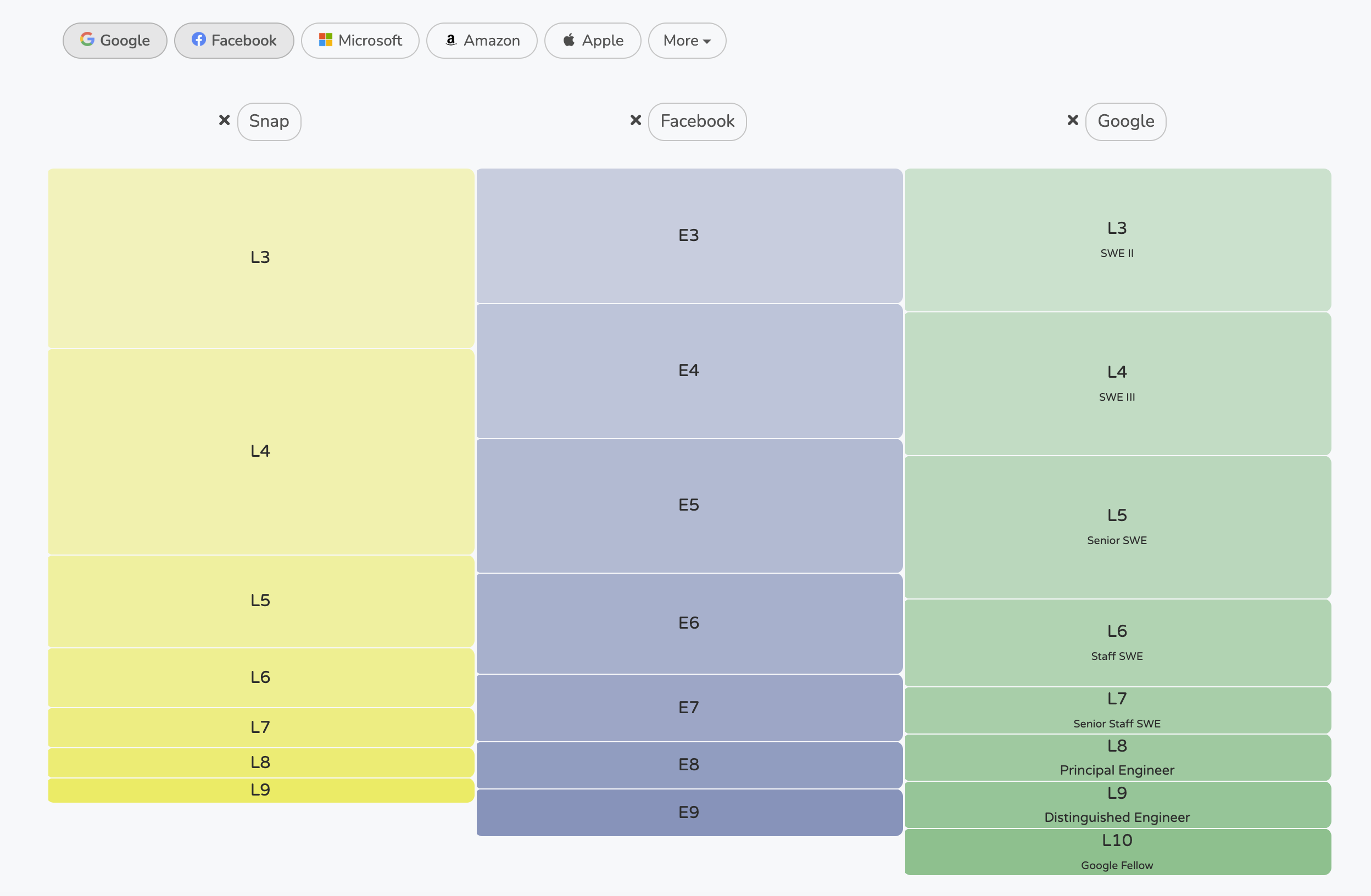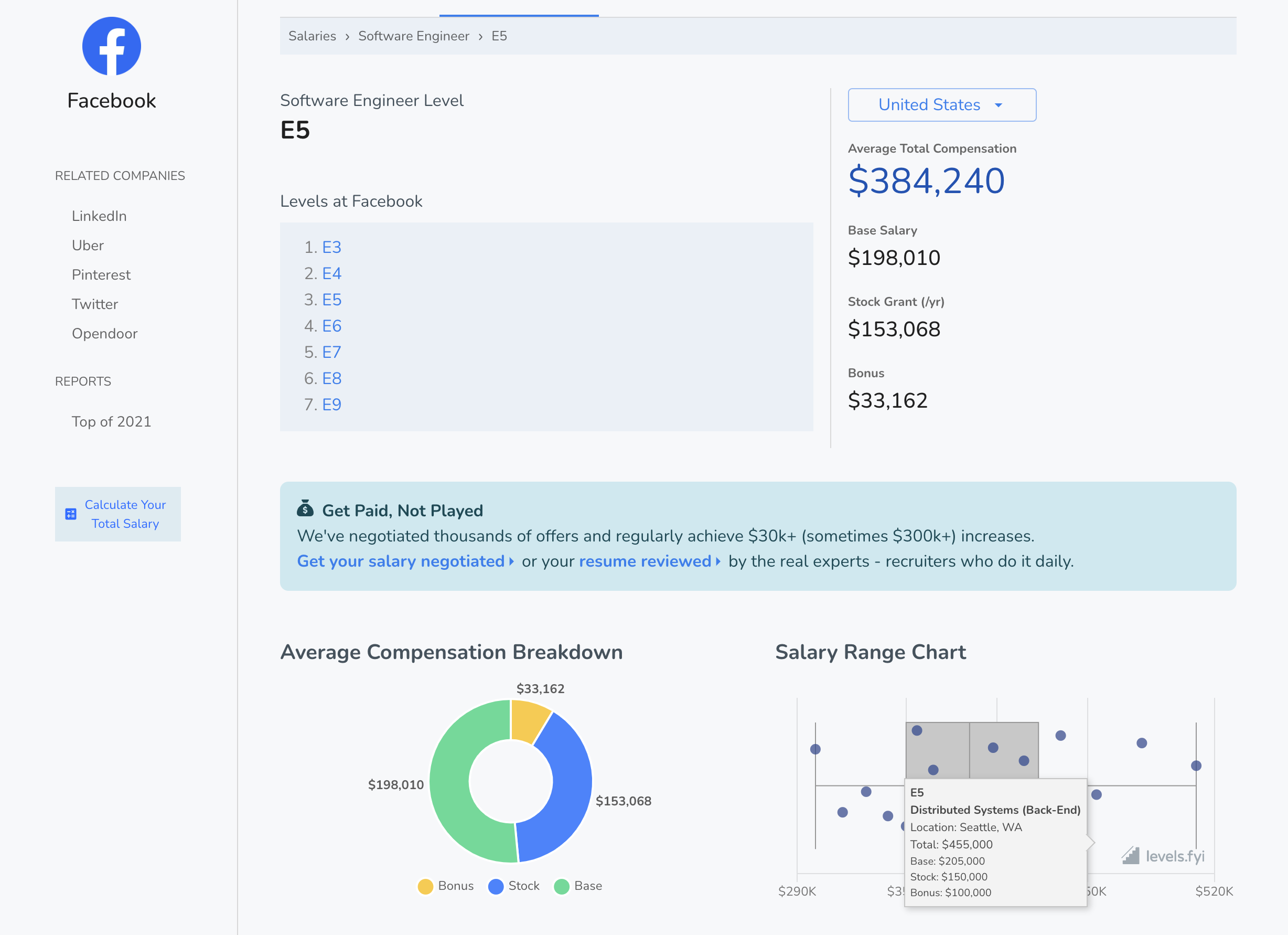Big Tech Salaries: How Much Money Should You Make?
There’s a ton of compensation data of Big Tech salaries out there, but a lot of them are completely missing the mark. For someone with a lot of industry insights, I can tell you that most of the information on software engineering pay is actually false, as it almost never accounts for the full picture. In this article, I’ll tell you about the best trustworthy resources to discover and keep track of software engineering salaries in Big Tech.
Having insights on compensation data at the industry level is the best leverage you can get when it comes to measuring yourself against your peers, negotiating new job offers, or knowing whether you are being paid fairly by your company.
Don’t be out of the loop. It’s crazy to see talented software engineers being extremely underpaid for years, just because they simply don’t know where the market truly is. This can happen for various reasons - you don’t have a network of friends in Tech, you are just breaking into Big Tech (maybe after a recent move to the US, or you barely just graduated), or maybe money isn’t your thing. Whatever the reason, knowledge is power, and in this case, knowledge can be a lot of money.
Salaries in Big Tech are insane
Back in 2014, when I got my first software engineering job offer in San Francisco, the total compensation was $230K for the first year, followed by $180K for year 2, 3, and 4. This was for a junior position, and back when inflation wasn’t this high, haha. I thought I was making a f*ton of money (especially since my friends back home in Europe were making like ~$40K/year, doing basically the same job). Boy, was I wrong…
2 years in, stock was not going anywhere (damn it!), so I decided to look out for greener pastures - my next job was paying me $350K / year (so almost double!!).
After a quick promotion to senior level and the stock going up a little bit, I was making $450K in year 5 of my career (and never dropped below that to this day - inflation, right?)
And this is just an average journey, I have many friends who worked a lot harder than me (got a little luckier too, to be frank), and ended up a lot better in terms of compensation (e.g. stock appreciation, faster promotions, etc).
What are the Big Tech salary components?
To this day, I still meet a lot of people (especially those who move from Europe to US) who are totally clueless on how compensation in Big Tech works out here. This is understandable, as in Europe it’s very unlikely to get a sign-on bonus or equity in most of tech companies (but not impossible though). There’s a lot of nuance when it comes to compensation components, but I’ll keep it brief, as that’s out of scope for this post.
In short, the Big Tech salaries components are:
- Base Salary
- Stocks (Equity)
- Sign-on Bonus
- Benefits (e.g. 401(K))
- Perks (e.g. gym, food, etc)
I don’t want to get into a lot of details here, as you can find a lot of this information online, but in general, there’s a cash component (signing bonus + base salary) and an equity component (stocks), plus some extra benefits which usually are not very significant when compared to the true money making components.
Sure, the offer might be at a startup (pre-IPO company), and then you might get some stock options or “paper money” stocks, which will make this even more complicated, and I’ll leave it out for now.
Just for fun, there are a few other things that are somewhat related to money, and you should be paying attention to when choosing between different offers:
- Days of PTO (paid time off) per year
- Remote vs. Office
- Parental Leave Days
As an example, let’s say you have two offers that are paying roughly the same (base, equity, sign-on), but one is from TikTok and the other one is from Twitter. Despite the compensation being the same, Twitter’s offer is actually much better, since they have unlimited PTO (vs. only 15 days of PTO per year at Tiktok), so you end up making the same money by working fewer days. If you plan to have a kid in the coming years, Twitter’s offer is even more attractive, as you’d get 4-5 months of parental leave as opposed to a few weeks at Tiktok. But this is a discussion for a different time.
Most resources that you find online, even the salaries displayed in job listings (and enforced in states like Colorado), are actually displaying incomplete data, as they almost never include the stock compensation or sign on bonus. The law enforces just the base salary to be public, and almost all the statistics made by the government or other 3rd parties is generated on base salary alone. Even the banks won’t consider your stocks as income (when applying for a mortgage for example), even though in some situations your stock compensation might be 4-5x your base pay.
Best Resources to track Big Tech salaries
There are 2 best resources you can use to learn about the Big Tech salaries, as well as to stay up to date with how they change over time:
Industry veterans might know about them already, but these are insanely accurate, so I have to recommend them. These are the only 2 places I go to for compensation data when I’m interviewing or negotiating job offers. Heck, you should be looking at these even before starting to do any interviews, to see if the company pays you enough money to make the move worth it!
Levels.fyi has a really nice comparing feature, where you can select the companies you are interested in, to compare their engineering levels and pay bands. This is extremely helpful when deciding between different companies, but it also gives you an extremely valuable set of insights into how the big tech industry pays their software developers (pro-tip: Google doesn’t pay that much!)
Here’s how you can compare different companies and their pay bands across levels:

You can dig into any level and company, to get full data, such as averages, outliers (extremely important, as you need to learn what’s the top pay for the band!). Here’s what an E5 (senior) software engineer makes at Facebook (Meta) for example:

While on average, an E5 makes about $384K/year, as you can see in the range chart, you can get a $550K salary for the same level, if you negotiate well. By the way, Facebook was giving away $100K sign-on bonuses even to junior engineers a while back, but this kind of insights are impossible to be extracted from levels.fyi.
And that’s where Blind comes in. Blind is a social network for developers, where you can talk to like minded people on topics such as career, compensation, job offers, etc. People discuss their current offers from Big Tech all the time, so you get to learn extra insights into what the salaries look like.